Sybil Movie Quotes is an innovative product that allows movie enthusiasts to bring their favorite films to life through a collection of memorable quotes. With an extensive range of iconic lines from a variety of genres, Sybil Movie Quotes offers a unique opportunity for individuals to relive the magic of their most beloved movies. Whether you’re a die-hard fan or simply seeking some on-the-go inspiration, this product is sure to transport you to the captivating world of cinema. Let the words of cinematic legends inspire and uplift you with Sybil Movie Quotes.
Sybil: Split Personality
Sybil, the iconic character from the movie, expresses the complexity of her condition through various quotes. She exclaims, “I’m not Sybil,” highlighting the fundamental aspect of her split personality. This statement indicates that Sybil sees herself as a multi-faceted individual, with each personality possessing unique characteristics and distinct identities. Vicky, one of her alters, echoes this sentiment by asserting, “I’m the one who wants to live.” This quote reflects the internal battle within Sybil, as some of her alternate personalities may have conflicting desires and motivations.
Peggy, another alter, conveys the isolation and lack of communication between the different personalities when she exclaims, “Nobody hears from us for months.” This quote emphasizes the fragmented nature of Sybil’s sense of self, as the various alter egos may often experience periods of silence or apparent absence. Lastly, the quote from Marcia, who serves as a voice of reason among Sybil’s alters, pleads with others to believe in the authenticity of Sybil as a collective entity, stating, “You’ve got to believe Sybil.” This quote highlights the struggle faced by individuals with dissociative identity disorder (DID) to have their experiences and identities acknowledged and validated by those around them.
Dr. Cornelia Wilbur: Therapy and Insights
Dr. Cornelia Wilbur, Sybil’s therapist, plays a crucial role in uncovering the mysteries behind Sybil’s split personality. She affirms Sybil’s condition by stating, “You have more than one personality.” This diagnosis lays the foundation for understanding Sybil’s dissociative identity disorder and sets the stage for her healing journey. Moreover, Dr. Wilbur explains that each alter exists to protect the core individual, noting, “The others are there to protect you.” This insight underscores the adaptive function of the various personalities, as they emerge in response to traumatic experiences and provide a means of coping and self-preservation.
Throughout the therapy process, Dr. Wilbur emphasizes the importance of understanding each personality. She states, “We need to understand each personality,” signaling the need for empathy and exploration in order to unravel the complex layers residing within Sybil’s psyche. By delving into the backgrounds, experiences, and unique perspectives of each alter, Dr. Wilbur endeavors to help Sybil develop self-awareness, integration, and ultimately, healing.
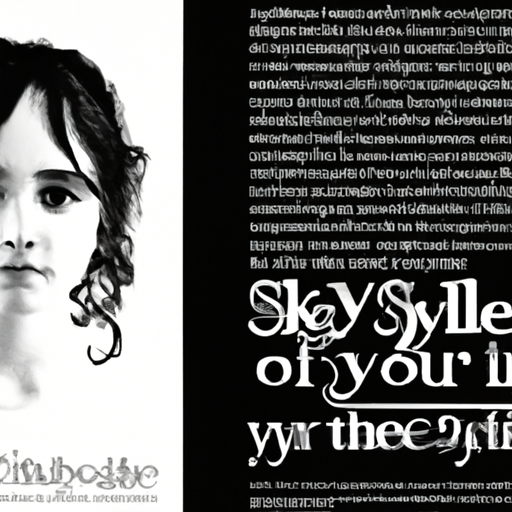
Sybil’s Mother: A Troubled Relationship
Sybil’s strained relationship with her mother adds another layer to her complex journey. Her mother’s hurtful words, such as “You’re just like your father,” serve to deepen Sybil’s wounds and exacerbate her internal conflicts. This quote implies that Sybil’s mother perceives her daughter as embodying the negative traits or characteristics of her father, potentially contributing to Sybil’s self-doubt and low self-esteem.
Furthermore, Sybil’s mother openly declares, “I don’t love you.” This statement reflects the profound emotional neglect and rejection that Sybil endures from a primary caregiver, amplifying the trauma she experiences. The absence of a nurturing, loving maternal bond can contribute to a myriad of psychological struggles and further exacerbate the development of dissociative identity disorder.
Sybil’s Selves: Different Perspectives
Within Sybil’s psyche, each alter persona possesses distinct viewpoints and attributes. Vicky, one of Sybil’s selves, affirms her role as the embodiment of strength, declaring, “I’m the strong one.” Vicky’s statement illustrates her function as a protective alter who copes with adversity by exhibiting resilience and fortitude. This alter may surface during times of stress or vulnerability, offering support and inner strength to Sybil.
Peggy, another of Sybil’s identities, claims, “I’m the one who knows everything.” This quote suggests that Peggy represents a repository of knowledge and memories, potentially holding vital information about Sybil’s past and the traumatic events that led to her disorder. Peggy’s presence allows for the preservation of memories that might otherwise remain buried or inaccessible to Sybil’s conscious awareness.
Marcia, whose alter ego represents reason and logic, asserts, “I’m the voice of reason.” This quote portrays Marcia as a stabilizing force within Sybil’s internal world, providing clarity and rationality amidst the chaos of shifting personalities. Her presence ensures the maintenance of coherence and coherence within Sybil’s fragmented sense of self.
Lastly, Sybil herself conveys her fear and vulnerability when she states, “I’m scared of being alone.” This quote emphasizes the underlying emotional struggles that Sybil grapples with as she navigates her condition. It highlights her longing for connection, indicating that despite the existence of other alter personalities, Sybil yearns for a sense of wholeness and unity.
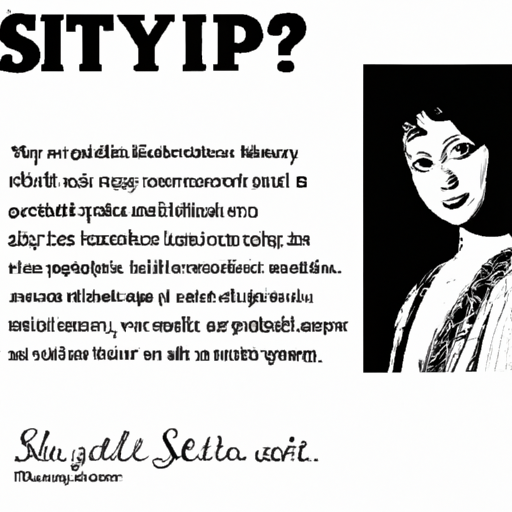
Dr. Wilbur’s Perspective: Understanding Sybil
Dr. Wilbur’s approach to treating Sybil’s dissociative identity disorder emphasizes empathy, understanding, and integration. She articulates her view that each alter personality serves a purpose, stating, “Each personality has a purpose.” This perspective challenges the notion that the existence of multiple identities is inherently pathological, instead recognizing the adaptive nature of these identities as they arise to cope with trauma.
Dr. Wilbur further explains that Sybil’s trauma gave birth to her alternate selves, stating, “Sybil’s trauma created her alternate selves.” This acknowledgment of the role trauma plays in the development of DID highlights the need to address and heal the underlying wounds in order to facilitate integration and recovery. Dr. Wilbur adopts a holistic approach, seeking to understand and heal the root causes of Sybil’s fragmented state rather than merely treating symptoms.
The goal of therapy, according to Dr. Wilbur, is to integrate the various personalities into one cohesive whole. She claims, “We must integrate the personalities to heal,” underlining the importance of reestablishing a unified sense of self. Driven by her dedication to Sybil’s well-being, Dr. Wilbur guides her patient along a path of self-discovery and healing.
Sybil’s Journey of Healing
Sybil’s personal journey encompasses various stages of growth, self-realization, and healing. Her desire to understand herself acts as a catalyst for change. She states, “I want to understand myself,” expressing her curiosity and determination to explore her own psyche. This introspective journey begins with self-compassion and a genuine desire to confront and embrace her true identity, no matter how fragmented it may appear.
Through the therapeutic process, Sybil finds strength in seeking professional help. She discovers the power of therapy as she proclaims, “Finding strength through therapy.” This statement embodies the transformative effect of therapy, providing Sybil with the tools and support necessary to navigate her internal landscape and confront her past traumas.
As Sybil uncovers the truth about her past, she embarks on a path of self-acceptance. She acknowledges the reality of her different identities, stating, “Accepting my different identities.” This shift towards self-acceptance allows Sybil to release her self-judgment and embrace the rich complexity of her being.
Sybil’s journey of healing also involves confronting her childhood trauma. By acknowledging and processing her past experiences, she can begin to heal the wounds that fuel her fragmented state. This journey is not easy, but Sybil’s determination to heal helps her overcome various obstacles and move forward on the path to wholeness.
Sybil’s Inner Conflict: Battling Her Selves
Sybil’s inner conflict arises as a result of the conflicting desires and needs of her different alter identities. Vicky, one of Sybil’s alters, demands recognition and visibility, exclaiming, “Stop pretending we don’t exist.” Vicky’s plea expresses the frustration of alter personalities who may feel overshadowed or dismissed, emphasizing the importance of acknowledging the existence and contributions of each alter.
Peggy, another alter, represents a voice of resistance against facing the truth. She asserts, “You can’t face the truth,” highlighting the internal resistance that arises when confronting painful realities and memories. This alter serves as a defense mechanism, attempting to shield Sybil from experiencing overwhelming emotions or retraumatization.
Marcia, on the other hand, advocates for the protection of Sybil’s well-being. She emphasizes the need to protect Sybil, stating, “We need to protect Sybil.” Marcia’s role as a voice of reason and protector demonstrates the inherent role of certain alter personalities in upholding and safeguarding Sybil’s emotional and psychological equilibrium.
Throughout her journey, Sybil finds herself caught in the midst of this internal conflict. However, she gradually realizes the necessity of confronting her inner demons, as she herself acknowledges, “I must confront my inner demons.” This acknowledgment signifies Sybil’s growing resilience and determination to confront the pain of her past, in order to ultimately find peace and integration.
Dr. Wilbur’s Dedication to Sybil
Dr. Wilbur’s unwavering commitment to Sybil is evident throughout the movie. She asserts her dedication by stating, “I won’t give up on you.” This sentiment showcases Dr. Wilbur’s belief in the possibility of healing and transformation, even in the face of seemingly insurmountable challenges.
Furthermore, Dr. Wilbur emphasizes the importance of collaboration and partnership, stating, “Together, we can overcome.” This quote encapsulates her collaborative approach to therapy, recognizing the importance of establishing a strong therapeutic alliance and working together towards the common goal of Sybil’s well-being.
Dr. Wilbur finds inspiration in Sybil’s unwavering courage and resilience. She affirms, “Your courage inspires me,” expressing her admiration for Sybil’s bravery throughout her healing journey. This acknowledgement of Sybil’s inner strength reaffirms the therapeutic relationship as a bond based on mutual respect and shared growth.
Sybil’s Breakthrough: Embracing Integration
Sybil’s ultimate breakthrough lies in her ability to embrace integration – the unification of her alter personalities into a cohesive whole. As she progresses on her healing journey, Sybil reaches a point where the boundaries between her different identities begin to blur. She experiences moments of blending and interconnectedness, symbolizing the gradual integration of her fragmented self.
Through therapy and self-reflection, Sybil learns to navigate the conflicts and complexities within her psyche. Embracing integration involves accepting and honoring all parts of herself, no longer viewing her alter personalities as separate entities, but rather as essential aspects of her being.
By embracing her reintegration, Sybil gains a sense of empowerment and freedom from the constraints of her dissociative identity disorder. This newfound unity allows her to reclaim her voice, her agency, and her authentic self.
Sybil’s Message of Hope
Sybil’s transformative journey conveys a powerful message of hope and resilience. Despite the adversity she faces, Sybil firmly believes that healing from trauma is possible. She asserts, “We can heal from our trauma,” inspiring others to recognize their own capacity for healing and growth.
Sybil encourages individuals to believe in their inherent strength and to refuse to let their past define them. With conviction, she proclaims, “Believe in your own strength,” motivating others to tap into their inner resources and embrace their unique resilience.
Furthermore, Sybil assures people that there is light at the end of the tunnel. She emphasizes, “There is light at the end of the tunnel,” conveying optimism for the future and inspiring a sense of hope in those who may be experiencing their own dark times.
Lastly, Sybil urges individuals not to let their past define them. She encourages others to rise above their experiences, recognizing their inherent worth and the infinite possibilities for growth and healing that lie ahead.
In conclusion, Sybil’s journey through her split personality and the guidance of Dr. Cornelia Wilbur shed light on the complexities of dissociative identity disorder. Through her struggle, Sybil’s message of hope resonates, reminding us that healing, integration, and self-acceptance are attainable. As we embrace Sybil’s story, we are invited to acknowledge and honor the multiplicity of the human experience, recognizing that our strength lies in our ability to face our inner demons, navigate our conflicts, and ultimately find wholeness in the face of adversity.







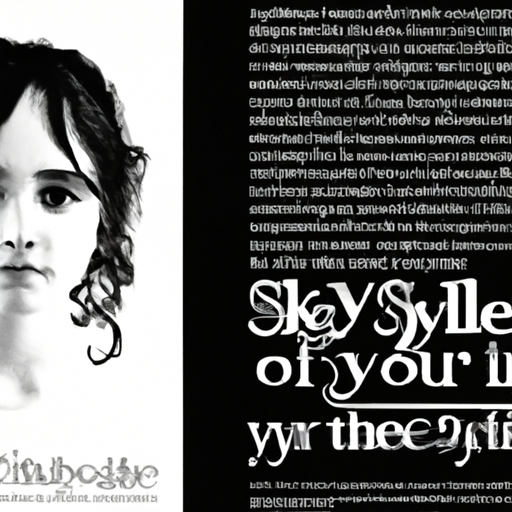



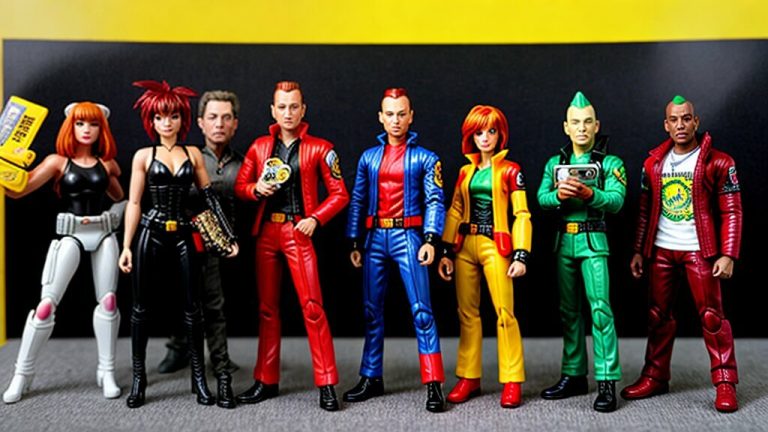


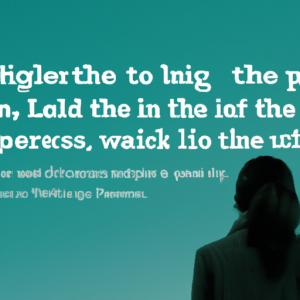
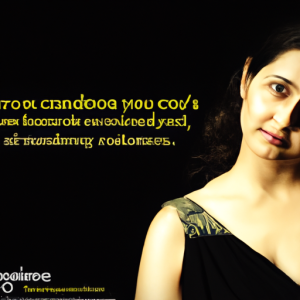



+ There are no comments
Add yours